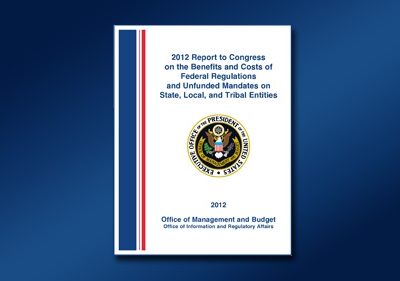Cost Benefit Analysis
Michigan v. EPA: Policymaking in the Guise of Statutory Interpretation
In Michigan v. EPA, the majority followed its own policy views, not those in the statute.
The majority opinion by Justice Scalia has gotten most of the attention. Most notably, he wrote that “[o]ne would not say that it is even rational, never mind “appropriate”, to impose billions of dollars in economic costs for a few dollars in health or environmental benefits.” Indeed, “[n]o regulation is ‘appropriate’ if it does significantly …
Continue reading “Michigan v. EPA: Policymaking in the Guise of Statutory Interpretation”
CONTINUE READINGInterpreting Michigan v. EPA
The opinion seems likely to have very limited repercussions.
In bringing the mercury rule to the Supreme Court, industry was hoping for a ruling that EPA had to balance costs and benefits (and could only include benefits relating to mercury). What they got was far less than that. Here, I’d like to address some key questions about the opinion. 1. When does EPA have …
Continue reading “Interpreting Michigan v. EPA”
CONTINUE READINGMercury Rising: The Court Reverses EPA’s Regulation
This was not a great decision for EPA, but it could have been much worse.
The Court has just now decided the Michigan case, involving EPA’s mercury regulation. As Ann Carlson explained in an earlier post, a lot was at stake in the case. The Court ruled 5-4 against EPA. This passage seems to be key to the Court’s reasoning: One would not say that it is even rational, never mind …
Continue reading “Mercury Rising: The Court Reverses EPA’s Regulation”
CONTINUE READINGWhose Benefits Count?
EPA is right to include climate impacts on foreign countries in its cost-benefit analysis of regulations.
When a regulation benefits people outside the U.S., should those benefits be counted? Or should a cost-benefit analysis include only positive and negative domestic impacts? As a recent paper by Ted Gayer and Kip Viscusi highlights, EPA has been counting the benefits of restricting carbon emissions for the entire world, not just the U.S. …
Continue reading “Whose Benefits Count?”
CONTINUE READINGDoes OIRA Live Up To Its Own Standards?
OIRA should conduct a cost-benefit analysis of its own activities and explore alternatives to its current oversight methods.
A White House office called OIRA polices regulations by other agencies in the executive branch. OIRA essentially performs the role of a traditional regulator – it issues regulations that bind other agencies, and agencies need OIRA approval before they can issue their own regulations. Essentially, then OIRA regulates agencies like EPA the same way that …
Continue reading “Does OIRA Live Up To Its Own Standards?”
CONTINUE READINGThe Lost World of Administrative Law
The regulatory process has become more opaque and less accountable. We need to fix that.
Every year, thousands of law students take a course in administrative law. It’s a great course, and we wish even more students took it. But there’s a risk that students may come away with a vision of the regulatory process that is increasingly disconnected with reality. Worse, the leading judicial opinions on the subject suggest …
Continue reading “The Lost World of Administrative Law”
CONTINUE READINGPeering Behind OIRA’s Veil of Secrecy
OIRA is staffed by under-trained, over-worked short-termers.
OIRA is an agency whose functions are as mysterious to most people as its name. It doesn’t help much to learn that OIRA stands for Office of Information and Regulatory Affairs. The phrase “regulatory czars” is more informative. OIRA runs the federal government’s regulatory process. Although agencies like EPA are required to have a lot …
Continue reading “Peering Behind OIRA’s Veil of Secrecy”
CONTINUE READINGGoing for Broke at the Climate Casino
The new Nordhaus book is good as far as it goes. But its analysis is muddled in crucial respects.
I finally had a chance to read Nordhaus’s new book, The Climate Casino, on a long flight. There are some goods lessons in the book. The book makes the case for serious mitigation, even rhough Nordhaus takes a fairly optimistic view about adaptation. Nordhaus also tells us that “it would be relatively inexpensive to slow …
Continue reading “Going for Broke at the Climate Casino”
CONTINUE READINGThe Cost of Carbon Revisited
In 2010, an inter-agency task force provided a series of estimates of the “social cost of carbon” to guide government cost-benefit analyses. The estimates vary with the discount rate and the date. For instance, using a 5% discount rate, it would be worth spending hardly anything — only $4.70 — to eliminate a ton of CO2 …
Continue reading “The Cost of Carbon Revisited”
CONTINUE READINGThe Curious Case of Positive Train Control
In a recent column, George Will uses positive train control as a poster child for the evils of government regulation, while also complaining about the “democracy deficit” of agency regulations. Actually, his two points contradict each other. Positive train control is really an example of democracy in action rather than bureaucratic excess — an automated …
Continue reading “The Curious Case of Positive Train Control”
CONTINUE READING











